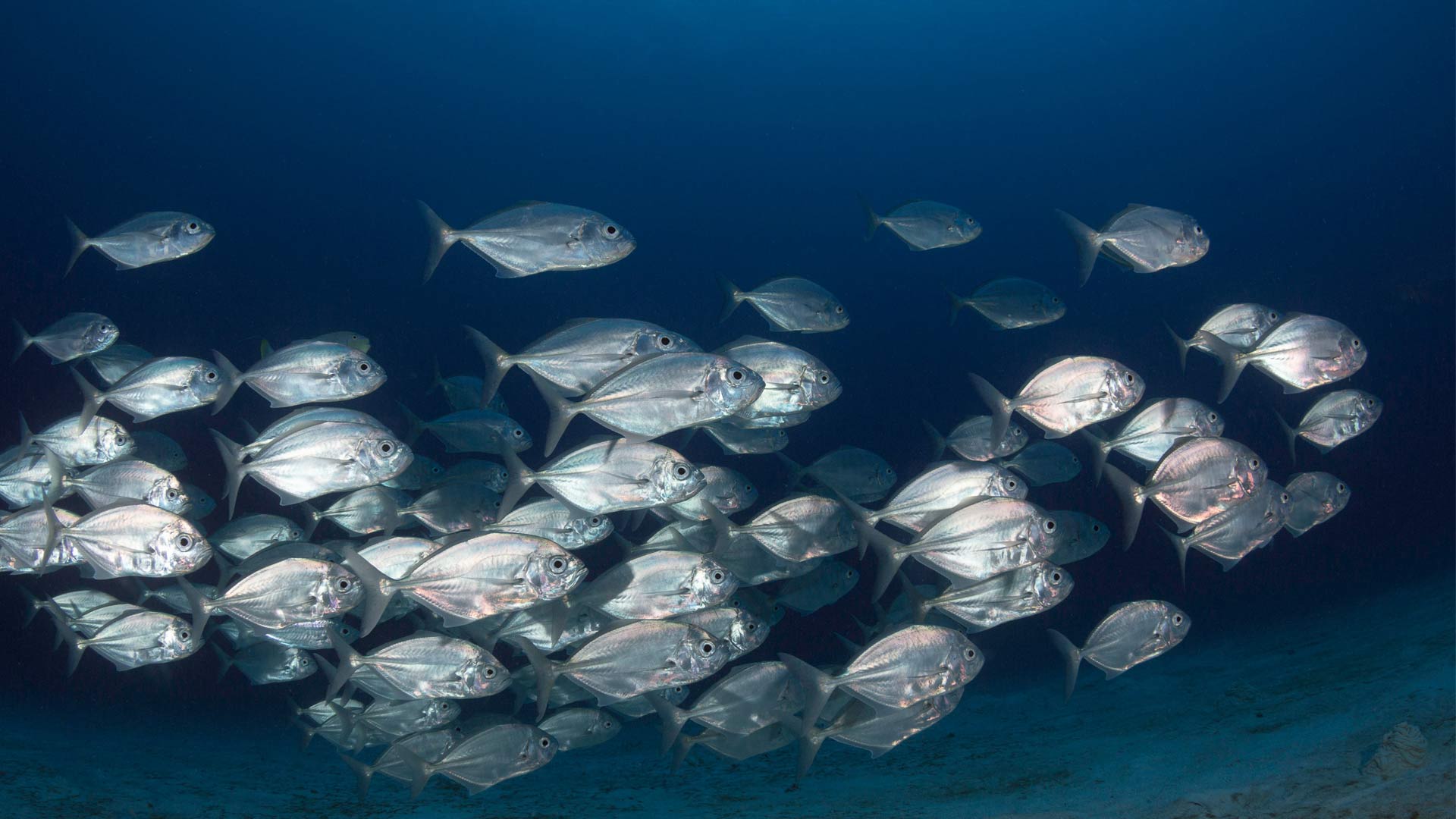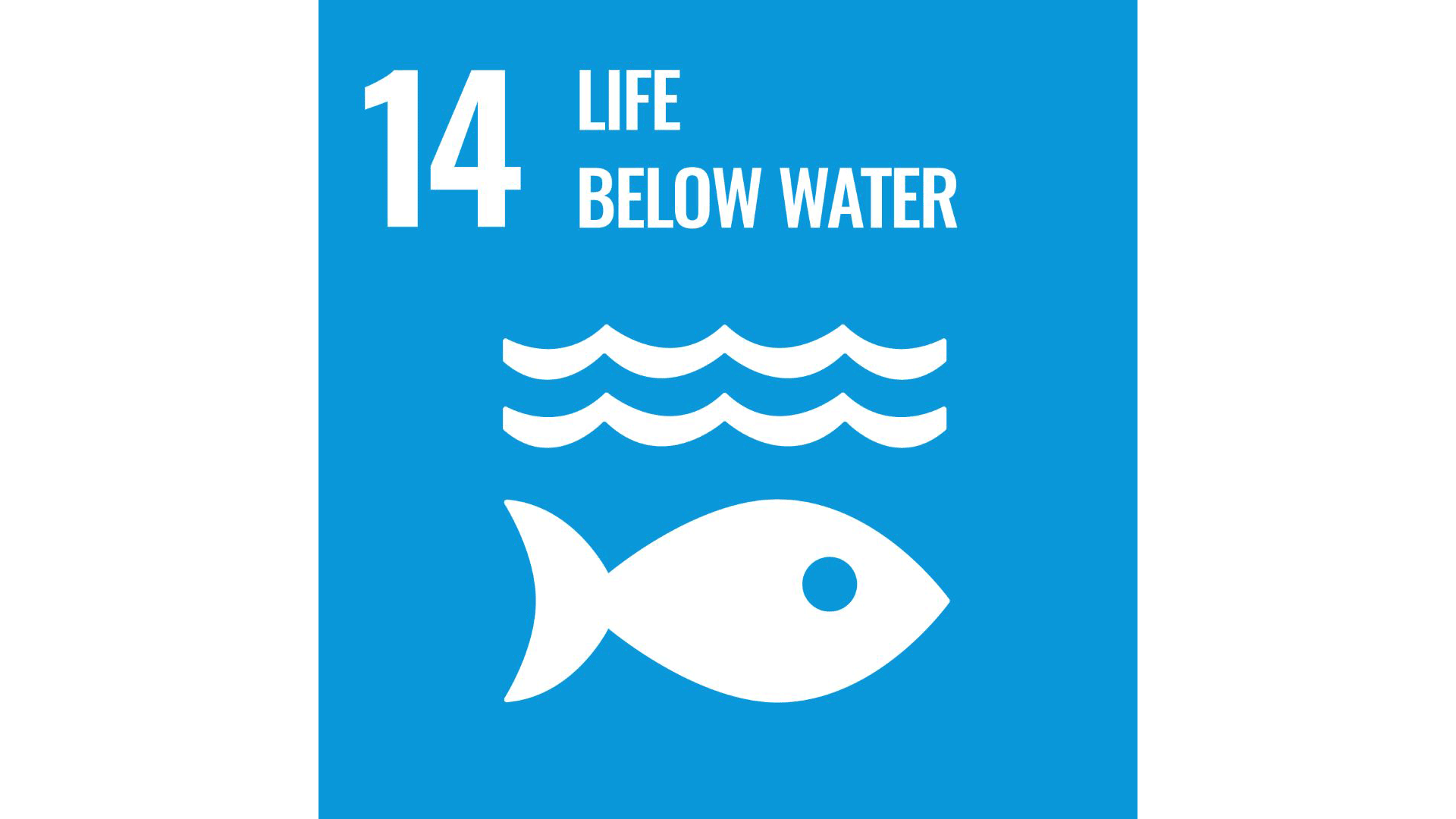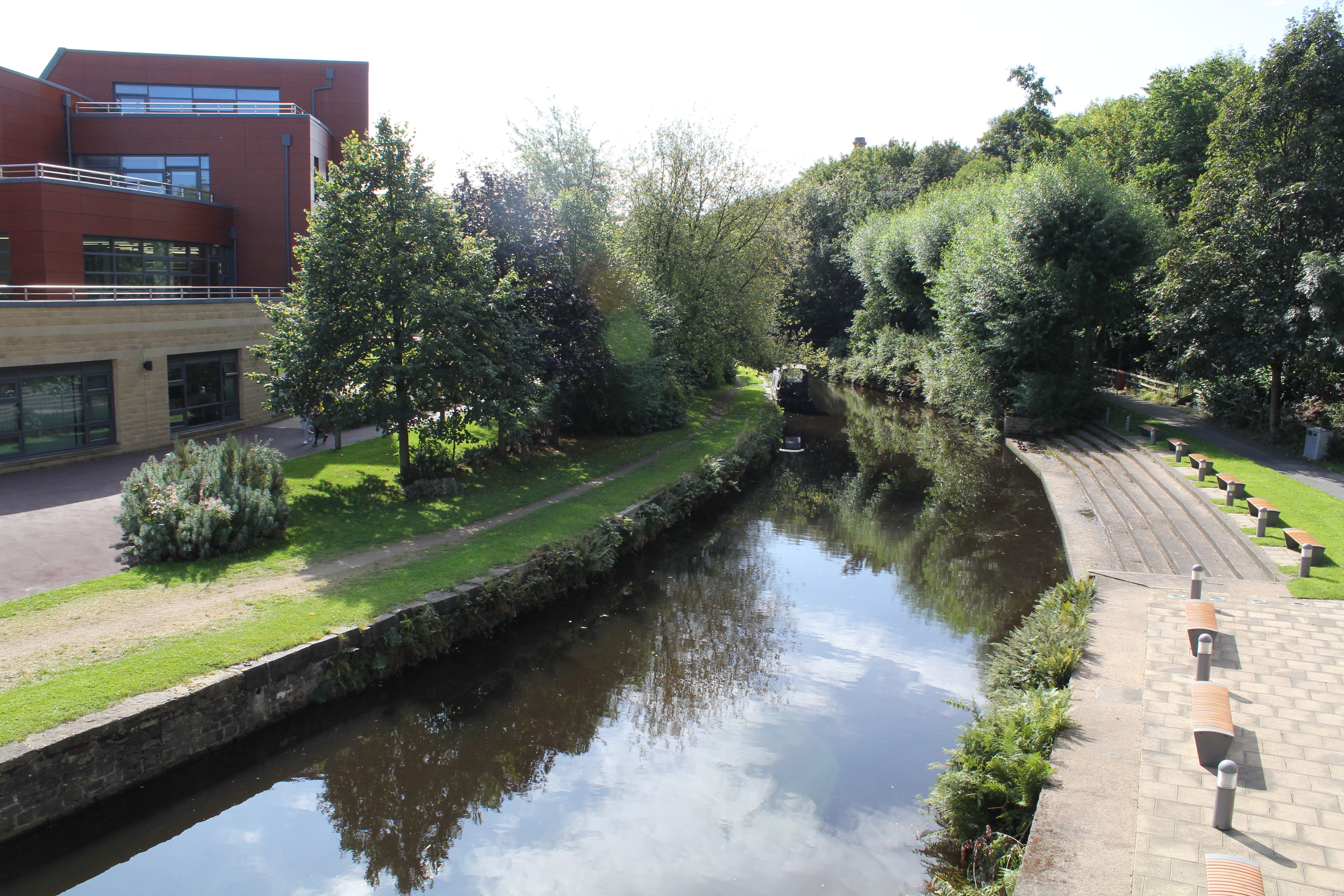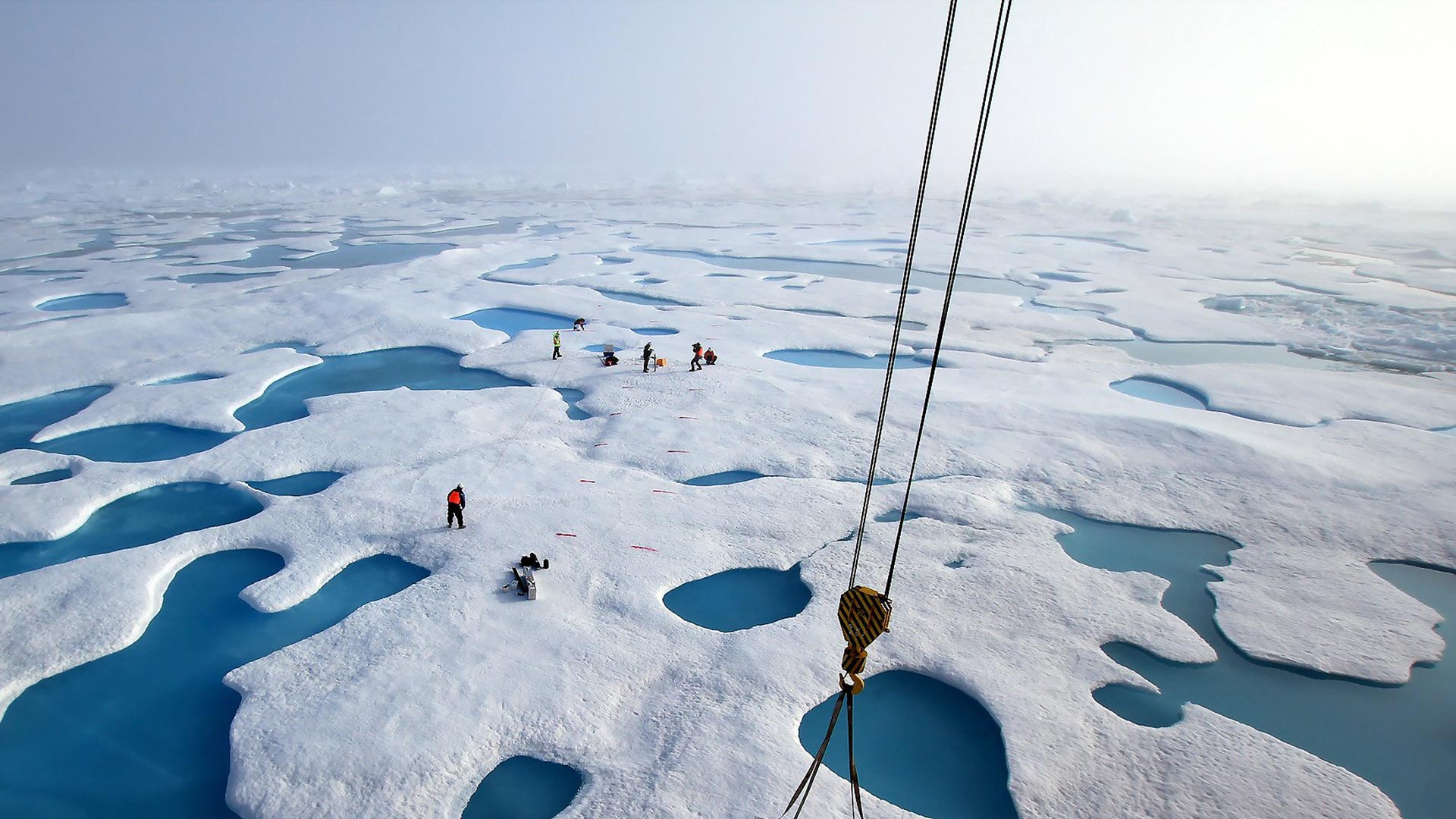
SDG 14: Life Below Water 2025 Report
SDG 14 - Life Below Water
Conserve and sustainably use the oceans, seas and marine resources for sustainable development
The University of Huddersfield actively supports SDG 14 by reducing campus waste and plastic use, ensuring harmful materials don’t reach local waterways, and maintaining sustainable cleaning and lab practices. Through a strong partnership with the Canal and River Trust, students and staff help protect the local canal ecosystem with regular clean-ups and conservation activities. Researchers contribute to ocean sustainability through work on Arctic sea ice, waterway biodiversity, and innovative solutions to reduce microplastic pollution in textiles and pharmaceuticals.

Public and business engagement
Collaboration with the Canal and River Trust
The Queensgate campus of the University is set alongside a canal and woodland walk that provides a rich habitat for wildlife such as fish, frogs, butterflies, dragonflies, geese, moorhens, and herons throughout the year. In collaboration with the Canal and River Trust, the University actively works to preserve this natural environment. Alongside routine litter collection by grounds staff, the Sustainability Team organise lunchtime litter picks with students and staff, which conclude with educational visits and waste drop-offs at the nearby Suez energy-from-waste facility. The University also partners with the Canal and River Trust to engage students in canal and towpath clean-up projects, including canoe-based litter picks and participation in the Big Clean Green Canal Week.

Operations
Waste Management
The University has implemented robust waste management protocols and anti-litter initiatives to help prevent pollution of local waterways. These measures include clearly marked recycling stations, gumdrop bins for chewing gum disposal, and well-defined procedures for handling specialist waste such as chemicals and liquid by-products from teaching, research, and operations. In addition, the University uses a chemical-free cleaning system across campus, with windows cleaned using recycled water to further reduce environmental impact.
Minimisation of plastic
In our food outlets across campus, we are working hard to eliminate the use of plastic, which can have a detrimental impact on local water courses. We have successfully replaced all plastic disposable take away, salad and hospitality boxes with biodegradable alternatives. We have also replaced plastic cutlery with a birchwood alternative in April 2023 ahead of the single-use plastics ban implemented in October 2023. In 2023/24, 101,000 birchwood cutlery items replaced plastic ones, we also promote the use of reusable metal cutlery to our dine-in customers.

Laboratory Efficiency Assessment Framework (LEAF)
The School of Applied Sciences has adopted the Laboratory Efficiency Assessment Framework (LEAF) sustainable science framework, leading to a reduction in water usage within laboratories. This has been achieved through the widespread use of waterless condensers in experiments and by ensuring glass washing equipment operates only at full capacity, minimising unnecessary water consumption.
Our research
The University of Huddersfield’s research includes work relevant to the maintenance of marine ecosystems and their biodiversity.
Arctic Sea Ice
At the University of Huddersfield, our long-standing commitment to environmental science is reflected in the work of researchers tackling real-world challenges. For example, Dr Phil Hwang studies sea ice in the Arctic, helping to improve how climate models predict changes in ice coverage and melting patterns - crucial for understanding global climate shifts. His work supports major international research efforts focused on the rapidly changing Arctic environment. The University also partnered with South East Water on the CatchmentLIFE project, backed by the £2 million Ofwat Innovation in Water Challenge. The project looks at how different environmental pressures affect freshwater wildlife, and explores practical, collaborative solutions to improve the health of our rivers and streams. Over time, CatchmentLIFE could help improve waterways across the UK.

Reduction of microplastics
Several researchers at the University are exploring innovative ways to reduce microplastics, contributing to the protection of watercourses from plastic pollution. Professor Parik Goswami has focused his research on minimising microplastics through advancements in textile product development, while Dr Muhammad Usman Ghori has created alternative materials to replace plastics in pharmaceutical applications.
Find further information
Carbon, energy and water
We're committed to reducing the impact of our estate on climate change, reducing carbon emissions, building energy efficiency and monitoring water management.
Biodiversity
Biodiversity is an important component of our sustainability work, ensuring that we are conserving and enhancing the wildlife around us, on our campus and in the community.
Sustainability initiatives
As a university, we work to embed sustainability into every aspect of campus life, combining innovation with responsibility to contribute to a sustainable future.
Sustainable Development Goals
Click to explore our other sustainable development goal pages and get to know how we're working towards these at the University of Huddersfield.